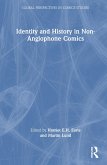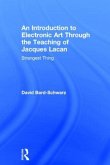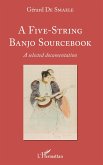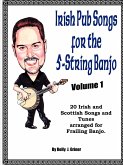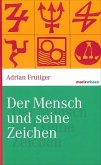Schade – dieser Artikel ist leider ausverkauft. Sobald wir wissen, ob und wann der Artikel wieder verfügbar ist, informieren wir Sie an dieser Stelle.
- Gebundenes Buch
- Merkliste
- Auf die Merkliste
- Bewerten Bewerten
- Teilen
- Produkt teilen
- Produkterinnerung
- Produkterinnerung
This book invites readers to use the author's digital resources to play with the parameters inherent in string art models, while offering concise, accessible explanations of the underlying mathematical principles regarding how the images were created and how they change.
Andere Kunden interessierten sich auch für
![Identity and History in Non-Anglophone Comics Identity and History in Non-Anglophone Comics]() Identity and History in Non-Anglophone Comics168,99 €
Identity and History in Non-Anglophone Comics168,99 €![An Introduction to Electronic Art Through the Teaching of Jacques Lacan An Introduction to Electronic Art Through the Teaching of Jacques Lacan]() David Bard-SchwarzAn Introduction to Electronic Art Through the Teaching of Jacques Lacan241,99 €
David Bard-SchwarzAn Introduction to Electronic Art Through the Teaching of Jacques Lacan241,99 €![Das erweiterte Museum Das erweiterte Museum]() Das erweiterte Museum19,90 €
Das erweiterte Museum19,90 €![A Five-String Banjo Sourcebook A Five-String Banjo Sourcebook]() Gérard de SmaeleA Five-String Banjo Sourcebook15,99 €
Gérard de SmaeleA Five-String Banjo Sourcebook15,99 €![Irish Pub Songs For The 5-String Banjo Volume 1 Irish Pub Songs For The 5-String Banjo Volume 1]() Kelly GrinerIrish Pub Songs For The 5-String Banjo Volume 119,99 €
Kelly GrinerIrish Pub Songs For The 5-String Banjo Volume 119,99 €![Refresh the Book Refresh the Book]() Refresh the Book193,99 €
Refresh the Book193,99 €![Der Mensch und seine Zeichen Der Mensch und seine Zeichen]() Adrian FrutigerDer Mensch und seine Zeichen10,00 €
Adrian FrutigerDer Mensch und seine Zeichen10,00 €-
-
-
This book invites readers to use the author's digital resources to play with the parameters inherent in string art models, while offering concise, accessible explanations of the underlying mathematical principles regarding how the images were created and how they change.
Produktdetails
- Produktdetails
- Verlag: Taylor & Francis Ltd
- Seitenzahl: 336
- Erscheinungstermin: 20. Februar 2024
- Englisch
- Abmessung: 280mm x 210mm
- Gewicht: 810g
- ISBN-13: 9781032515175
- ISBN-10: 1032515171
- Artikelnr.: 69030843
- Verlag: Taylor & Francis Ltd
- Seitenzahl: 336
- Erscheinungstermin: 20. Februar 2024
- Englisch
- Abmessung: 280mm x 210mm
- Gewicht: 810g
- ISBN-13: 9781032515175
- ISBN-10: 1032515171
- Artikelnr.: 69030843
Stephen Erfle is a professor at Dickinson College. Although he was trained as a microeconomic theorist specializing in industrial organization and regulation, he has spent much of his academic life working at the borders of traditional economics. He has used his economist¿s toolkit to examine topics in a wide variety of fields including public health, exercise psychology, political geography, mathematics education, and communications theory in addition to economics. He has consulted for a variety of organizations including the Seagram Classics Wine Company, the Forum on Education Abroad, and the Pennsylvania Department of Health. His Seagram Classics sabbatical reoriented the direction of his teaching and research as it turned his former analytical focus (theorem and proof) into a more empirical focus (what does the data tell us). It also led him to cofound the international business and management major at Dickinson College. One of the core courses in that major, Managerial Decision Making, teaches students to analyze the kinds of decisions he was asked to answer during his time working for Seagram Classics. He has spent much of his time in the past couple of decades devoted to pedagogical issues revolving around providing geometric interpretations and explanations for a variety of topics. The books and papers in these topic areas seek to explain economic and mathematical concepts in intuitive terms, often to students with limited mathematical backgrounds. He received his BS in Mathematics and BA in Economics from University of California, Davis, and Ph.D. in Economics from Harvard University.
Part I. Preliminary Issues. 1. Introduction and Overview. 2. How Polygons
are Drawn. 3. String Art Basics. 4. Issues involving Commonality. 5.
Cycles. 6. Alternative ways to Obtain an Image. 7. Levels of Subdivision
Points. 8. Shape-Shifting Polygons. 9. An Overarching Question. 10.
Functionally Modified String Art files. 11. A sampling of Image Archetypes.
12. n = P images. 13. 60-Second Images. 14. Challenge Questions for Part
II. 15. Centered-Point Flowers. 16. Double Jump Models. 17. Four Color
Clock Arithmetic. 18. Larger Jump Set Models. 19. Busting out of our
Polygonal Constraint. 20. Challenge Questions for Part III. 21. Basic
Properties of Numbers. 22. Angles in Polygons and Stars. 23. Modular
Arithmetic. 24. Modular Multiplicative Inverses, MMI. 25. A Guide to the
Web Model. 26. Suggestions for Mathematics Teachers.
are Drawn. 3. String Art Basics. 4. Issues involving Commonality. 5.
Cycles. 6. Alternative ways to Obtain an Image. 7. Levels of Subdivision
Points. 8. Shape-Shifting Polygons. 9. An Overarching Question. 10.
Functionally Modified String Art files. 11. A sampling of Image Archetypes.
12. n = P images. 13. 60-Second Images. 14. Challenge Questions for Part
II. 15. Centered-Point Flowers. 16. Double Jump Models. 17. Four Color
Clock Arithmetic. 18. Larger Jump Set Models. 19. Busting out of our
Polygonal Constraint. 20. Challenge Questions for Part III. 21. Basic
Properties of Numbers. 22. Angles in Polygons and Stars. 23. Modular
Arithmetic. 24. Modular Multiplicative Inverses, MMI. 25. A Guide to the
Web Model. 26. Suggestions for Mathematics Teachers.
Part I. Preliminary Issues. 1. Introduction and Overview. 2. How Polygons
are Drawn. 3. String Art Basics. 4. Issues involving Commonality. 5.
Cycles. 6. Alternative ways to Obtain an Image. 7. Levels of Subdivision
Points. 8. Shape-Shifting Polygons. 9. An Overarching Question. 10.
Functionally Modified String Art files. 11. A sampling of Image Archetypes.
12. n = P images. 13. 60-Second Images. 14. Challenge Questions for Part
II. 15. Centered-Point Flowers. 16. Double Jump Models. 17. Four Color
Clock Arithmetic. 18. Larger Jump Set Models. 19. Busting out of our
Polygonal Constraint. 20. Challenge Questions for Part III. 21. Basic
Properties of Numbers. 22. Angles in Polygons and Stars. 23. Modular
Arithmetic. 24. Modular Multiplicative Inverses, MMI. 25. A Guide to the
Web Model. 26. Suggestions for Mathematics Teachers.
are Drawn. 3. String Art Basics. 4. Issues involving Commonality. 5.
Cycles. 6. Alternative ways to Obtain an Image. 7. Levels of Subdivision
Points. 8. Shape-Shifting Polygons. 9. An Overarching Question. 10.
Functionally Modified String Art files. 11. A sampling of Image Archetypes.
12. n = P images. 13. 60-Second Images. 14. Challenge Questions for Part
II. 15. Centered-Point Flowers. 16. Double Jump Models. 17. Four Color
Clock Arithmetic. 18. Larger Jump Set Models. 19. Busting out of our
Polygonal Constraint. 20. Challenge Questions for Part III. 21. Basic
Properties of Numbers. 22. Angles in Polygons and Stars. 23. Modular
Arithmetic. 24. Modular Multiplicative Inverses, MMI. 25. A Guide to the
Web Model. 26. Suggestions for Mathematics Teachers.


